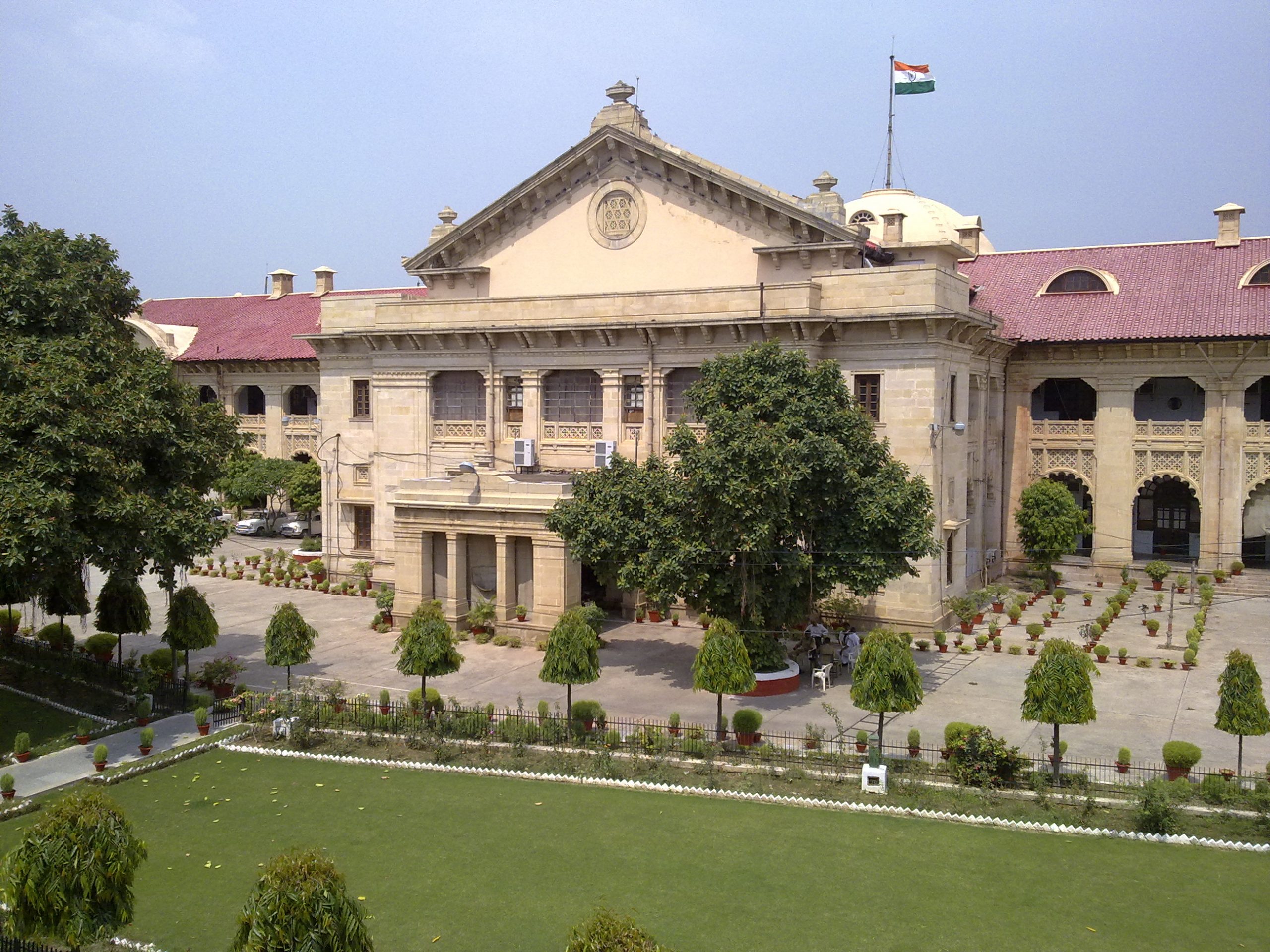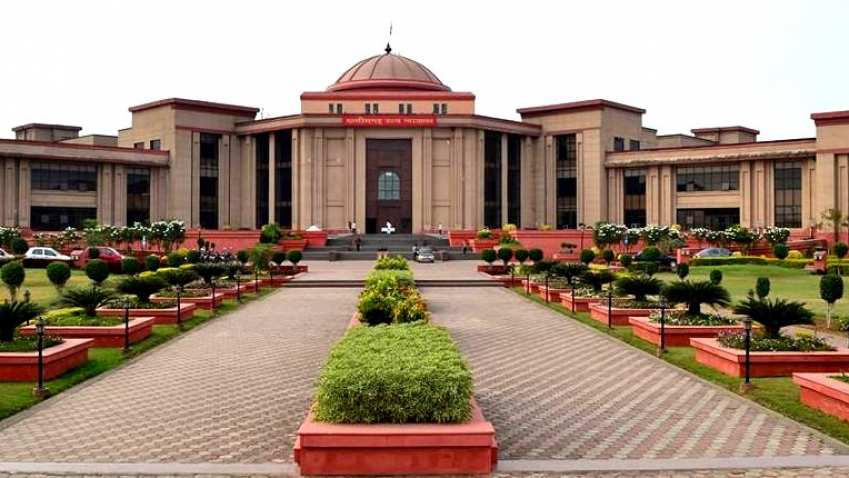Now Reading: In conversation with Arjit Benjamin, an IP enthusiast and an avid litigator, about practice area specialization and convergence of IP with Litigation
-
01
In conversation with Arjit Benjamin, an IP enthusiast and an avid litigator, about practice area specialization and convergence of IP with Litigation

In conversation with Arjit Benjamin, an IP enthusiast and an avid litigator, about practice area specialization and convergence of IP with Litigation
In conversation with Arjit Benjamin , who is a litigator par excellence and has been avidly interested in the field of Intellectual Property Rights. Presently working with Karanjawala & Co., Arjit has travelled across the globe for his education and attending the Annual Conferences of International Trademarks Association (INTA). It is his keen interest in the field and the exposure that he has garnered through attending these international conferences that he is reckoned as the ‘Go-To’ person for all Intellectual Property matters in a Firm which is Dispute Resolution centric.
Here’s an insightful conversation with Arjit for our Readers:
While pursuing B.B.A., you’ve studied for brief period in London, under the ‘Study Abroad Programme’. What are the key differences you find in teaching pattern in India and abroad?
Arjit: The key difference between the teaching pattern in India and abroad is that in India, there is a lot of emphasis on class-room mode of teaching whereas abroad, the approach is more towards practical application of learning. Our teaching pattern is academically sound and focussed towards making us technically robust. Most of the educational institutions abide by a curriculum, allowing students to take up internships during the period when colleges are closed. Abroad, there is more thrust on Case Studies. They encourage students to venture out of class rooms, conduct market studies and explore the vocational aspects of theory. At the end of the tenure, students are asked to conduct presentations and sessions to showcase their findings and analysis. I’d say I’m rather fortunate to experience both aspects of teaching – one that strengthened my knowledge base and the other that trained me towards venturing into the practical world outside of the textbooks.
From Business Administration to Law, how did the shift happen? Do you think Lawyers also need to be good Managers?
Arjit: Let’s say that pursuing law was always on the cards since I always looked up to my father who has been a renowned lawyer for almost 35 years. However, there is an innate entrepreneurial streak in me which I always wanted to explore; and for which my family duly motivated me. Contrary to popular notions, a formal education in Business Administration doesn’t really teach you only management, rather it grooms you 360 degrees, instilling confidence in you to be good entrepreneurs. Therefore, I took up Business Administration first to have a rather enriching experience than to straightaway venture into Law. As regards need for lawyers to be good managers, I am of the view that knowing the law and its application are the foremost competencies a lawyer needs to possess, especially in the early stages of one’s career. As one assumes more responsibility and grows in the profession, other aspects of one’s personality, like inter-personal skills, knowledge of numbers and profitable running of practice also have a play. It is at this stage that managerial skills assume importance because as a leader and a mentor, one has to take the team along and run a sustainable practice. So I’d say, you need to be good lawyer first, and thereafter a good businessman. Leading a team, meeting new clients and seeking favourable recourse for your clients are built on the base of rock-solid technical knowledge. There is no replacement for merit. Rather, merit is the foundation on which structures of success are built.
You’ve been working with one of the topmost dispute resolution law firm of India. What are the challenges litigators face and how do you combat them?
Arjit: Working for one of the topmost dispute resolution law firm of the country, Karanjawala & Co., has been a life changing experience for me. To constantly meet the service standards which the firm is known for, one has to be on the toes and updated with real time legal developments. I believe the biggest challenge we face as litigators is to manage time. There are several priorities and all of them would need to be attended to, side by side. Right from appearing in court to coordinating with counsels, spending due time in research, ensuring quality drafting and simultaneously keeping abreast with changes to legislation as well as new case laws. Unless you develop multi-tasking skills, you would constantly find yourself grappling with these conflicting and equally important priorities. I have been fortunate to be mentored by my Reporting Partner Ms. Meghna Mishra, who is not just a lawyer par excellence, but an extremely patient mentor and the most grounded person I’ve met in my life. Under her tutelage, I’ve learnt a few ground rules of being a good litigator. Let me summarize them as below:
- Know the law and know your matter inside out. Half your battle is won when you’re aware of the facts, their substance or merit, and how they enable your case.
- Know the lacunas and loopholes of law. More often than not, it’s the lacunas that will pave the way for your litigation strategy.
- Know how to articulate and develop the ability to state what you want to, before the court.
- Learn the court crafts through observation and experience. You’ll need to be prepared for hit and trial but ensure that you depict a learning curve.
- Know how to convince people and read not just peoples’ mind, but their body language as well. This includes clients, counsels, judges, opposite parties and other stakeholders.
- Develop commercial sense of the industry sector to which your client belongs and advise your client from the point of view of commercial viability.
How did you develop interest in Intellectual Property (IP) Law?
Arjit: As I mentioned earlier, my father has been in the IP field for about three and a half decades now. During my growing years, my father used to narrate to me real life stories about conceptualization of brands, infringement of trademarks, anecdotes regarding brand protection and brand enforcement. I was intrigued to learn more and my inquisitiveness paved the way for my initial interest in the field of Intellectual Property (IP). When I started pursuing my formal education in law, I also developed interest in Criminal Law. During this period, I got a chance to intern with K&S Partners, a well-known IP Firm of the country. The very learned team at K&S Partners not only taught me basics of IP prosecution, but also gave me exposure to areas were IP and Criminal Law converge, i.e., Anti-Counterfeiting action, Investigations, Market Studies, John-Doe Orders, Cease and Desist Correspondence, Criminal Raids, etc.
In the IP field, what do you find more challenging – contentious IP work or non-contentious IP work?
Arjit: Both are two sides of the same coin and have their own charm. It won’t be fair to say which of the two is more challenging, as both contentious and non-contentious work require extensive research, due diligence, perseverance and excellent drafting skills. Non-contentious IP work requires one to be extremely diligent towards dates, timelines, searching tools & techniques, use of software and technology; and most importantly being able to liaise with IP registry. It requires one to proactively highlight the potential red flags to clients and think outside the box in terms of not confining to the information or brief provided by the client. I believe a lot of back-end hard work goes into staying at the forefront of the IP prosecution genre. In contentious IP work, challenges are different. You require thorough research to present your case and protect your clients’ rights. Most importantly, you need to understand the pulse of your client (whether clients are pro-litigation or otherwise), study the stakes and devise a litigation strategy accordingly. Needless to say, you have to be on top of your game in terms of being aware of procedural aspects of the IP law. If you’re looking to specialize deeper in the field of IP, start your journey with non-contentious IP work and get the hang of prosecution basics first, before moving towards contentious IP work.
You’ve been attending the Annual Conference of International Trademarks Association (INTA) from the very beginning of your career. How has it helped you grow as a lawyer?
Arjit: Annual INTA Conference is a global event where stalwarts from the global IP fraternity come under one roof. My travel to INTA Annual Conference has helped me communicate with the most iconic figures in the field of IP, including legal practitioners, general counsels, academicians and business leaders. More than calling it networking, I would say that I was able to foster long term relationships during the conference. It made me understand the future of the IP market, role of technology in the ever- changing IP landscape and global IP trends. My aim is to protect best brands and work for clients across the globe and I’m sure INTA has opened the gates to this possibility in future. Though Indian Conferences also provide huge options to engage with who’s who of the IP fraternity and build your network, INTA Conference adds international perspective and a window to be aware of global best practices.
As someone who developed interest in IP from early stages of career, what would be your advice to young lawyers with respect to specialization?
Arjit: It is now almost a known fact that during the initial stages of one’s career, having an all-round experience is a must. If you choose to specialize in the formative years, you may be confining yourself to a particular field or practice area without testing the waters. There may not be going back, should you not enjoy the area of work. Also, there is a great possibility that you may reach a saturation stage earlier as compared to a scenario where you start specialization later in your career. Therefore, it is important to understand the ground level work and be accustomed with basics of law, before deciding to manoeuvre your interest in a particular field. When you enter the profession, expectations are different and you’ll get to learn from your mistakes. Identify what interests you and start building your focus by way of being aware about the area. Actively write about your field of interest and engage with those who are known as ‘experts’ in the field. Participate in discussions and professional forums. The market in inclined towards specialization but before you take the giant leap, make sure that your choice is thought through and you’ve got your basics correct.
From participating in Moot Courts to judging them, life has come a full circle. How important do you think these extra-curricular activities are?
Arjit: Speaking from the litigation perspective, Moot Courts, Mock trials, all other sorts of competitions are important for bringing out the most important aspect of the personality of a litigator, i.e., audacity. When I was a student, I felt very conscious and nervous, while preparing for the Moot Courts and Mock Trials. In order to confidently face the rigorous grilling by the people who are pioneers in the field of law, I used to read the facts, propositions and case laws over and over. I would say that the process made me discover capabilities which even I was not aware about myself. It helped me refine my oratory skills and the entire process made me mature as a lawyer. Students should take up these challenges to achieve a different milestone altogether as it would train them towards vital aspects like court decorum and discipline, imbibing the correct body language, professional appearance in court and right demeanor while presenting the case in front of the judges. Handling the situation when your back is against the wall will teach you whether you perform or crumble under pressure, and what are your takeaways from the process.










